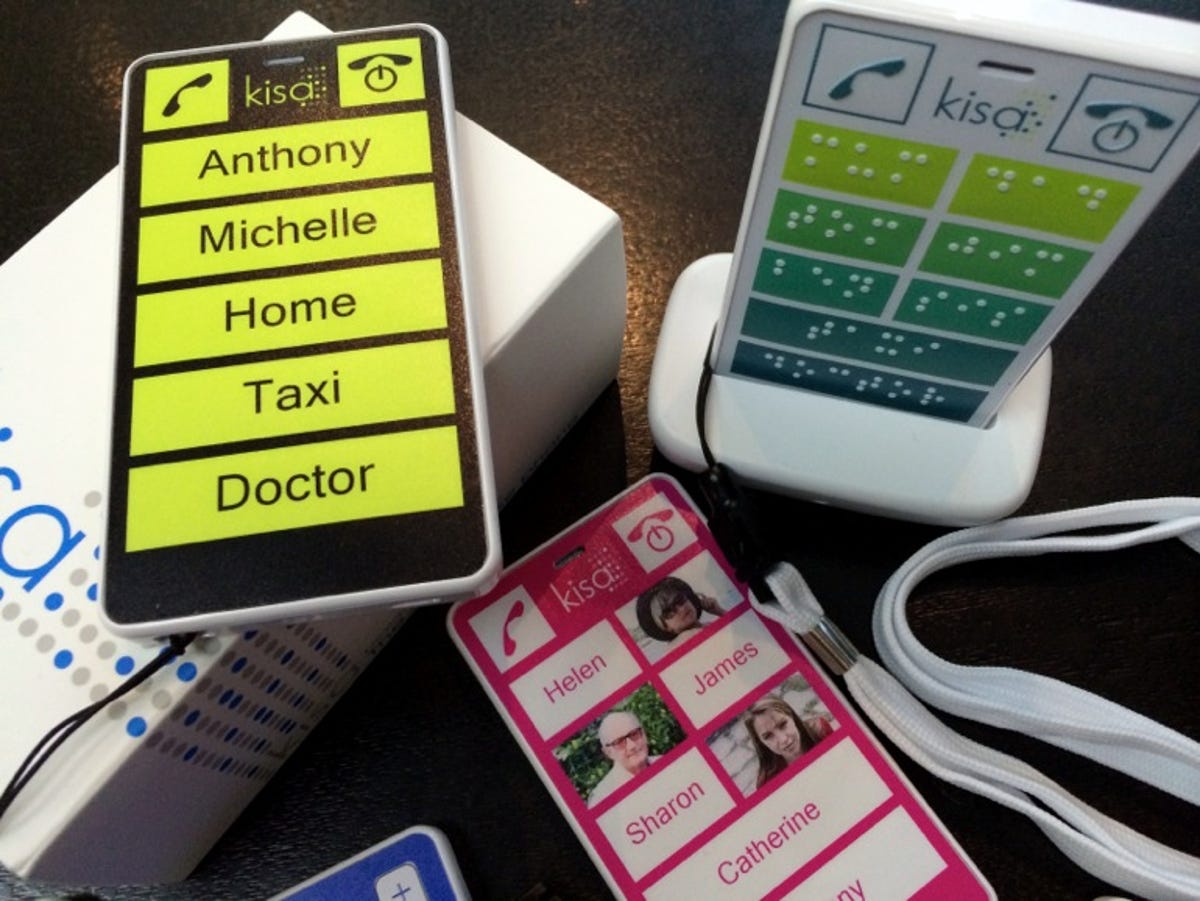KISA isn’t the first to offer a simplified, basic phone for the elderly and vision impaired. In recent months we’ve been introduced to the OwnFone here in Australia, while overseas we’ve been hearing about services like Odin Mobile since 2013.
But KISA seems to have gone to the greatest lengths yet to build a custom piece of hardware that gets a few extra details just right for its customers. Dmitry Levin, director of KISA, told CNET the company has worked closely with organisations like Vision Australia and Guide Dogs Victoria to refine and iterate on their designs until they were confident to go to market.

Seamus Byrne/CNET
The KISA phone has many of the same features we’ve seen recently in the OwnFone. You place a custom order online to design your phone, choose names or faces to have printed on the device, and choose from printed and Braille options. Your phone will be custom made and delivered with a SIM built in, KISA acting as your service provider so your phone is ready to go right out of the box. You can also call KISA to update phone numbers associated with the buttons on your phone.
Where KISA goes further than OwnFone is in a few small details that might make a world of difference to the target customer. The most obvious is the inclusion of a docking cradle to avoid needing to carefully insert a micro-USB cable into the device — a blind or arthritic user might struggle with a cable, but the dock makes it easy to snap the phone into the slot. The cradle is simple, but also designed to have a clear front and back so it is easy to feel which was is the right way to drop the phone in.
Another is the inclusion of a dedicated SOS button on the reverse of the device, a large, round button that depresses deeply into the phone. The SOS dials 112, a universal emergency number for mobile networks around the world. The back of the phone can also carry wider emergency details for the phone’s owner, including the owner’s name, an emergency contact name and number, and advice on medical conditions.
There is clearly only a limited market for phones like these, but for those who do need one it’s important the device answers all their needs. KISA’s Levin suggested that while the first versions are about keeping it as simple as possible, further enhancements will be possible in future. Ideas include a software update for existing phones that will make the phone say the name of the button you’ve pressed to confirm you’ve dialled the intended number, and a future version of the phone that will include GPS for tracking users who might have dementia related problems.
KISA phones start from AU$99, which includes the cheapest AU$15 per month calling plan. There is no contract period.



